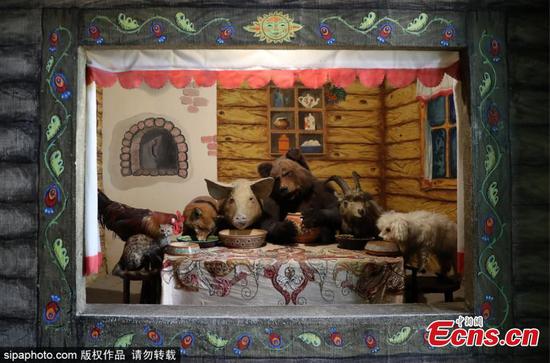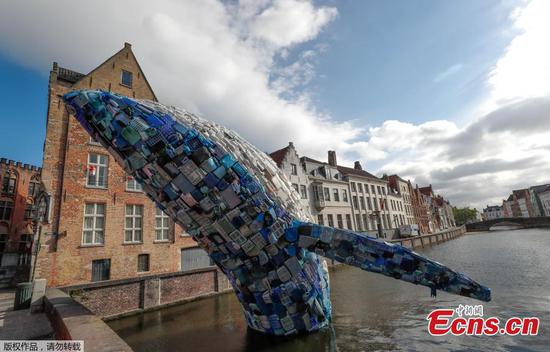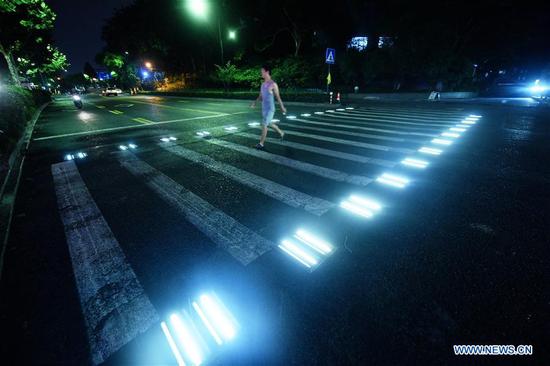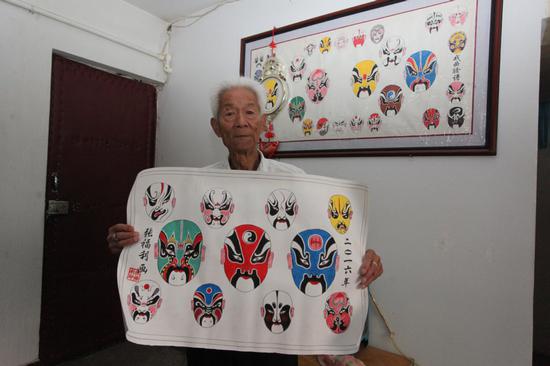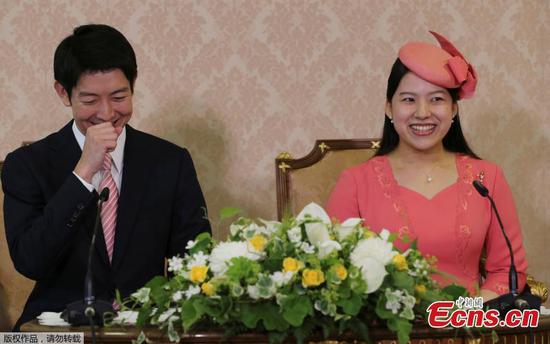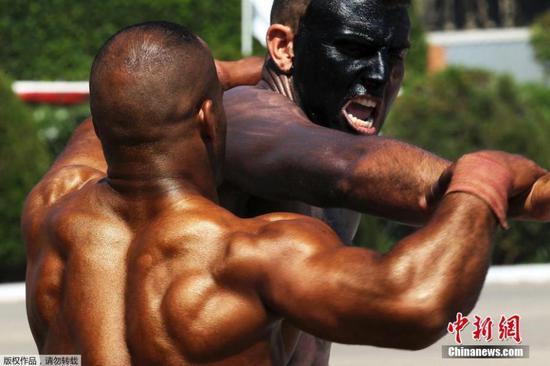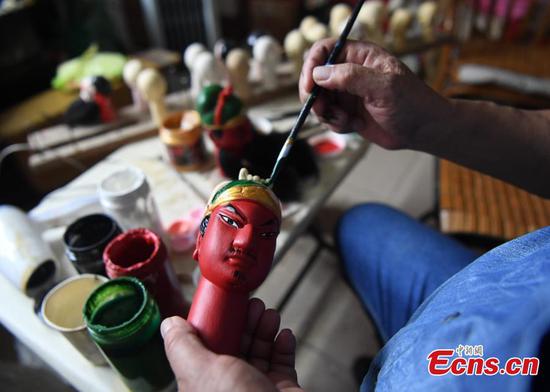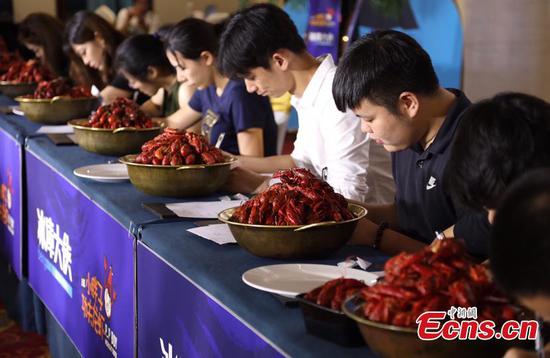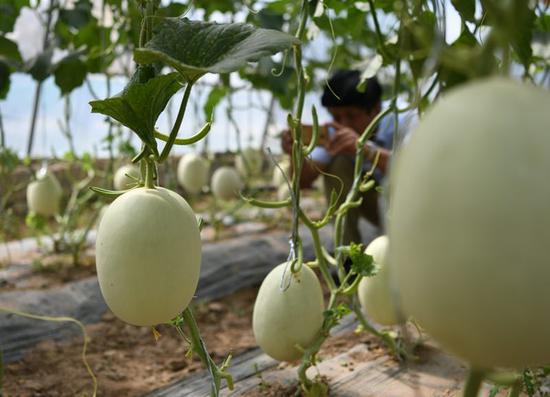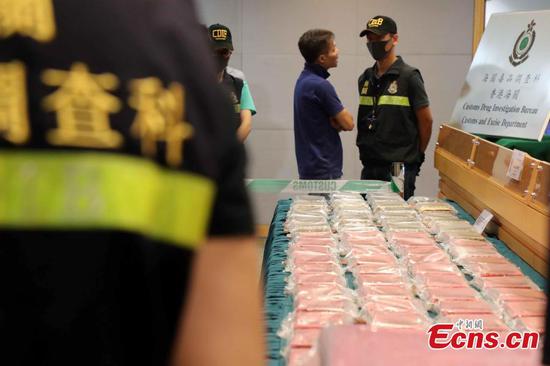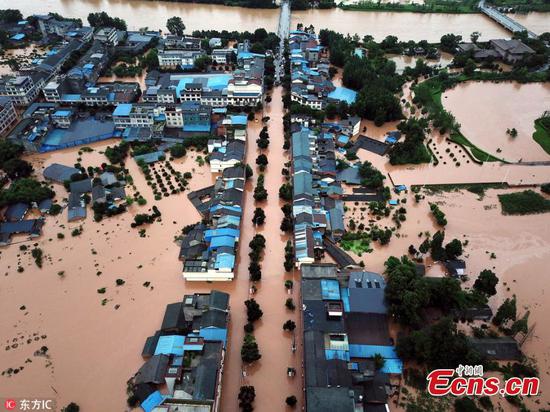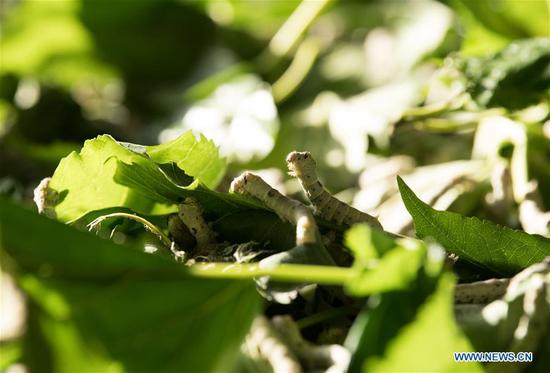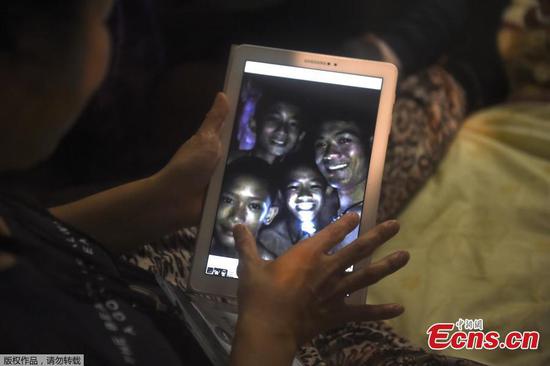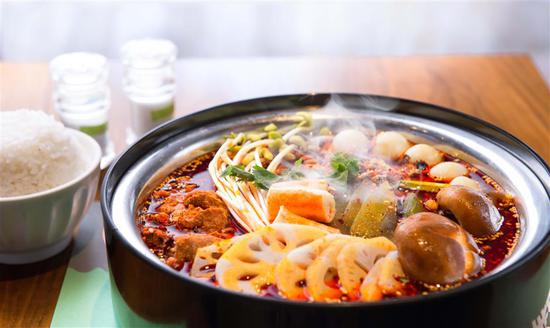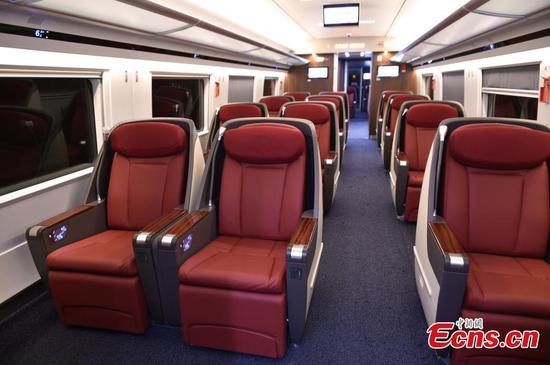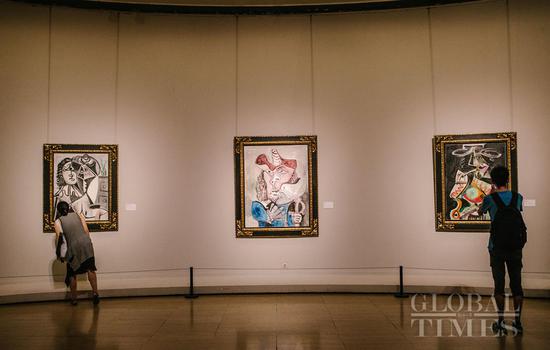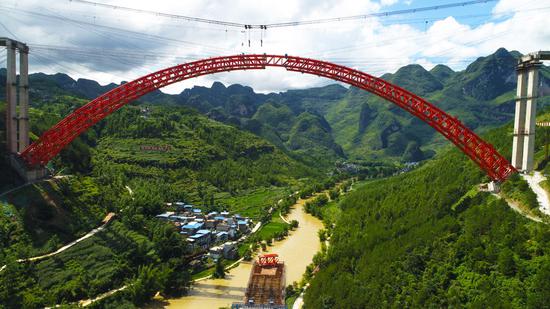Despite sweltering summer heat, 56-year-old village head Lu Hong patrols the village greenway to check sanitation in China's Fujian Province, as diligently as he ran his own restaurant in New York.
While many were desperate to obtain U.S. citizenship, Lu renounced it in 2009 and returned to his hometown in Fuqi village, Fujian, after running his New York restaurant for 20 years.
Many overseas Chinese are from Fuqi, a village situated by the river estuary of Minjiang.
Lu said there are over 6,000 people from Fuqi currently living in the United States, while back home in the village, there are only 1,100 people.
"The village used to have a population of 6,000 people in the 1980s. Since then, many people left. It is like the whole village has been transplanted to America," he said.
Although there is no village called Fuqi in America, expats from the village established the American Fuqi Association in 1987, so that members can help each other and come together to celebrate Chinese festivals to deal with homesickness.
Changle District of Fuzhou, the provincial capital, has a centuries old seafaring tradition. Ships of the great Ming Dynasty (1368-1644) explorer Zheng He stopped here for supplies and repairs before setting out on journeys to Southeast Asia and beyond, making a part of China's Maritime Silk Road history. The statue of the explorer stands just a few kilometers north of Fuqi village.
The pioneering spirit has been inherited for generations. Local peasants and fishermen explored the sea routes to Southeast Asia and further to the United States to seek fortunes. When they got rich, they sent money home and built beautiful mansions combining Western and Chinese architecture styles.
Lu arrived in New York in 1988. He followed the life track of other Chinese immigrants in the United States, working as a kitchen cleaner, and later a chef in a restaurant opened by a fellow Fuqi villager.
At that time, he earned 1,100 U.S. dollars a month, low by U.S. standards, but about 100 times the amount his family could earn back home in Fuqi.
"I worked 13 hours a day, 6 days a week, living in a 40 square meter basement with 10 other Chinese immigrants in Chinatown," he recalled.
As soon as he saved enough money, Lu opened his own restaurant in 1995. That year, he sent money home to Fuqi and built a 6-storey house with an elevator, the first of its kind in the village.
The ostentatious houses built by early adventurers like Lu Hong made others even more determined to follow their path to go overseas. Lu immigrated to the United States with his four daughters in 2000, when the eldest was in fifth grade.
The exodus lasted until the early 2000s. However, the tide began to turn when their businesses in the United States experienced hardships amid the 2008 financial crisis, while across the ocean, China offered more business prospects.
After several years of working hard to run his restaurant business, Lu's health started to get worse. He chose to retire and go home. He said he gave up his U.S. citizenship because he never thought he would go back.
In his lush and tranquil homeland, his health recovered, and he dedicated himself to rebuilding his family's ancestral hall with money sent by overseas villagers. In 2015, he was elected as the village head.
Lu said in the past few years, over 200 villagers living in the United States have returned to Fuqi to settle down.
For senior villagers, chatting while making kongfu tea and overlooking the confluence of the Mingjiang River and East China Sea is the best retirement life.
For Lu and many others, returning home means helping boost their hometown's economy.
Lu Minlong, 51, a cousin and childhood friend of Lu Hong, has invested in real estate development since he returned home from the United States in the late 1990s.
"I came back because I saw opportunities in China," he said. "Now my business has expanded across the country."
The village head Lu said villagers living abroad are important sources of funds for Fuqi's development, and they also benefit from the investment.
The development mode of Fuqi is shared in many other villages in Fujian. Paul Zhang, a villager across the river from Fuqi, has become an Australian citizen and U.S. permanent resident. With over 15 years of experience in the cold chain business in north America, Zhang established a food business called RnJ Group in Fuzhou.
The company imports about 1.6 million U.S. dollars of products from Australia, New Zealand and the United States every month.
"When we first introduced Boston lobsters into the Fujian market in 2012, we barely found any buyers," he said. "But now they are often in short supply in China and the price is almost three times that from 5 years ago, said Zhang.











